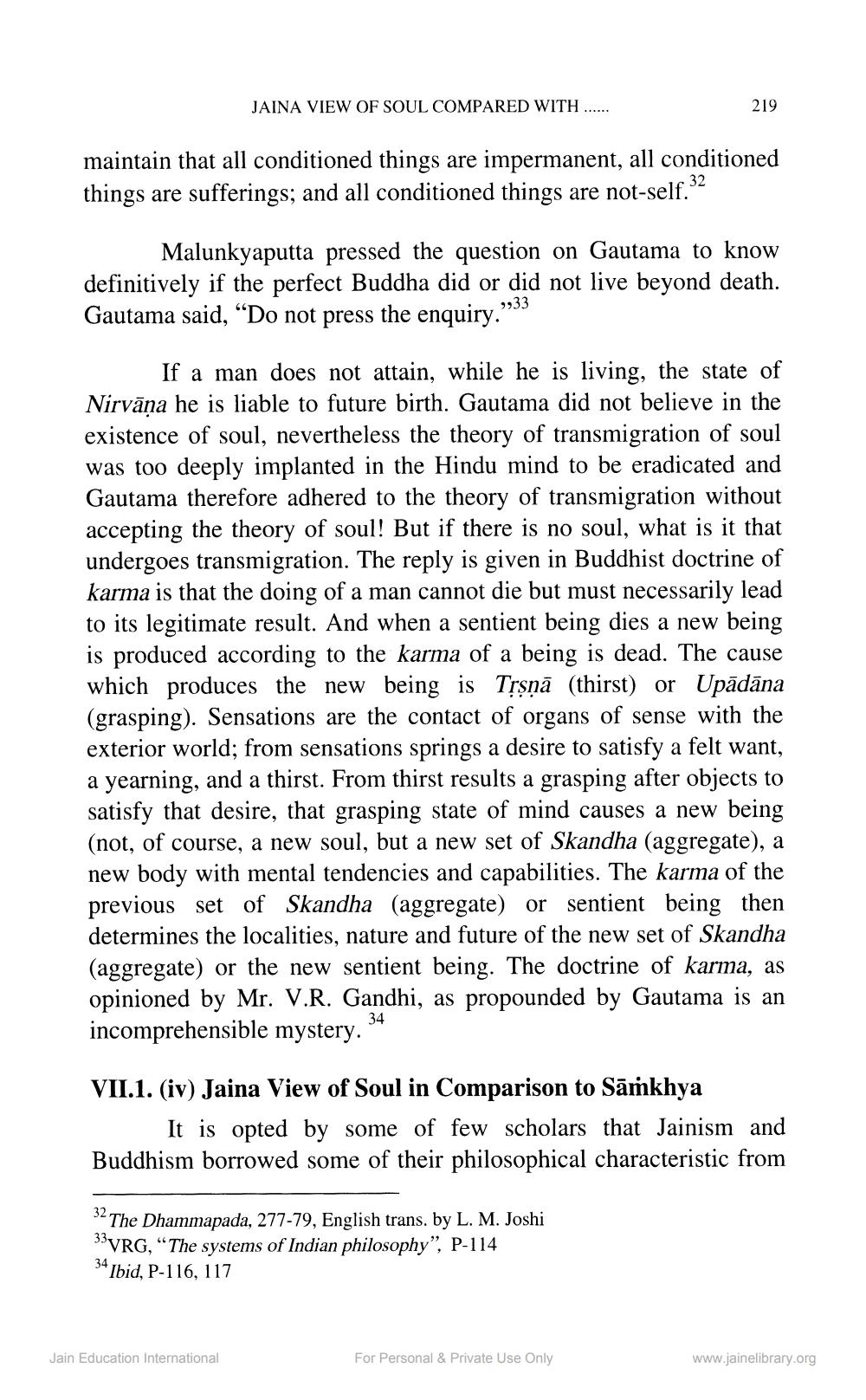________________
JAINA VIEW OF SOUL COMPARED WITH ......
219
maintain that all conditioned things are impermanent, all conditioned things are sufferings; and all conditioned things are not-self.”
Malunkyaputta pressed the question on Gautama to know definitively if the perfect Buddha did or did not live beyond death. Gautama said, “Do not press the enquiry.???)
53
If a man does not attain, while he is living, the state of Nirvāṇa he is liable to future birth. Gautama did not believe in the existence of soul, nevertheless the theory of transmigration of soul was too deeply implanted in the Hindu mind to be eradicated and Gautama therefore adhered to the theory of transmigration without accepting the theory of soul! But if there is no soul, what is it that undergoes transmigration. The reply is given in Buddhist doctrine of karma is that the doing of a man cannot die but must necessarily lead to its legitimate result. And when a sentient being dies a new being is produced according to the karma of a being is dead. The cause which produces the new being is Trsņā (thirst) or Upādāna (grasping). Sensations are the contact of organs of sense with the exterior world; from sensations springs a desire to satisfy a felt want, a yearning, and a thirst. From thirst results a grasping after objects to satisfy that desire, that grasping state of mind causes a new being (not, of course, a new soul, but a new set of Skandha (aggregate), a new body with mental tendencies and capabilities. The karma of the previous set of Skandha (aggregate) or sentient being then determines the localities, nature and future of the new set of Skandha (aggregate) or the new sentient being. The doctrine of karma, as opinioned by Mr. V.R. Gandhi, as propounded by Gautama is an incomprehensible mystery.
34
VII.1. (iv) Jaina View of Soul in Comparison to Sāmkhya
It is opted by some of few scholars that Jainism and Buddhism borrowed some of their philosophical characteristic from
»-The Dhammapada, 277-79, English trans. by L. M. Joshi "SVRG, “The systems of Indian philosophy”, P-114 34 Ibid, P-116, 117
Jain Education International
For Personal & Private Use Only
www.jainelibrary.org




